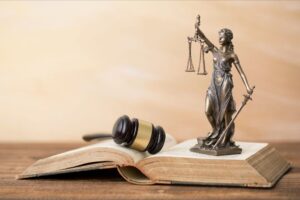
By Stacy Plotkin-Wolff
It’s mid-2025, and California’s new civility CLE requirement is now officially in effect. For the first time, all California attorneys must complete at least one hour of continuing legal education addressing civility in the legal profession. This change is more than a technical update to MCLE compliance—it represents a critical acknowledgment by the State Bar of California that civility is foundational to attorney wellness, ethical practice, and, ultimately, public confidence in the legal system. In an era where trust in institutions is increasingly fragile, how lawyers treat each other and the courts has become a reflection of how the justice system treats the public.
Persistent incivility in the legal profession has long been linked to elevated levels of stress, burnout, depression, and substance use among attorneys. These challenges are not only personal—they are professional and systemic. When incivility undermines a lawyer’s mental health, it threatens their ability to practice law competently, as required by Rule 1.1 of the California Rules of Professional Conduct. The effect of the new MCLE requirement recognizes that civility is not a soft virtue, but a concrete safeguard for maintaining the quality and reliability of legal services. Competent, ethical lawyering builds trust with clients and communities—and that trust is essential to maintaining public faith in the rule of law.
Supervising attorneys have added ethical responsibilities under Rules 5.1 through 5.3 to ensure that subordinate attorneys and nonlawyers uphold professional obligations. These rules are especially critical in high-pressure or uncivil workplaces, where misconduct or impairment may go unaddressed. Left unchecked, such environments corrode morale, impair judgment, and contribute to errors that compromise not only individual cases but public trust in the legal profession. In this context, ethics opinions like ABA Formal Opinion 03-431 and North Carolina Formal Ethics Opinion 2013-8 urge lawyers to be proactive when they observe signs of impairment in their colleagues—supporting early intervention and accountability.
The ethical landscape has also shifted with California’s adoption of Rule 8.3, effective August 1, 2023. Rule 8.3 imposes a duty to report another lawyer’s conduct when it raises a substantial question regarding honesty, trustworthiness, or fitness to practice. While the rule includes exceptions—such as information protected by confidentiality or obtained through lawyer assistance programs—it reinforces the broader ethical obligation to protect the public and the profession from serious misconduct. Similarly, Business and Professions Code § 6068(o) requires attorneys to report certain judicial sanctions and adverse findings. These requirements are not about policing each other—they are about upholding the standards that give the public reason to believe in the integrity of our legal institutions.
The importance of reporting is underscored by cases like In re Himmel, 125 Ill. 2d 531 (1988), in which an attorney was disciplined for failing to report known misconduct by another lawyer. The case illustrates that silence in the face of serious ethical violations is itself a breach of professional duty. Such inaction not only harms clients but also sends the wrong signal to the public—that lawyers will protect one another at the expense of justice. In contrast, a profession that holds itself accountable strengthens its social contract with the public.
In this evolving landscape, California’s civility requirement signals a broader shift toward cultural and ethical responsibility. Civility is now recognized as essential to attorney well-being, a condition for competence, and a practical defense against burnout. But its value extends beyond the profession. When lawyers engage in respectful, ethical conduct, they model the very principles the legal system is built on: fairness, integrity, and accountability. That conduct promotes faith in the legal process and demonstrates that the rule of law is alive not just in the statutes we cite, but in the way we treat one another. In that sense, civility is not just a professional obligation—it is a public trust.